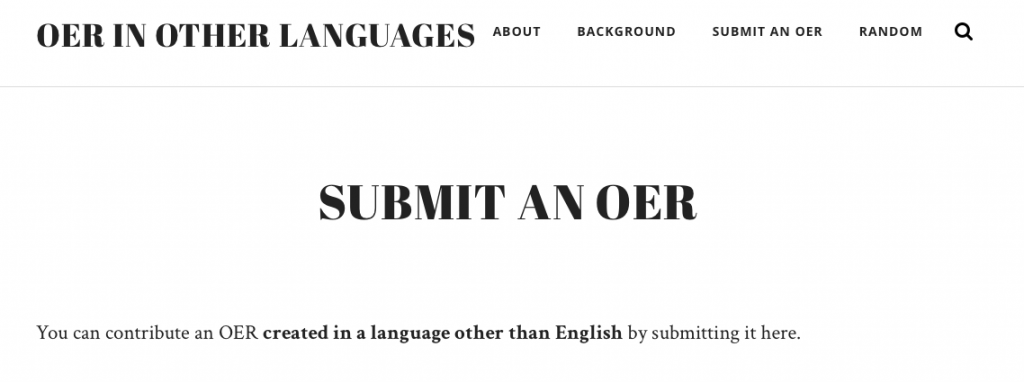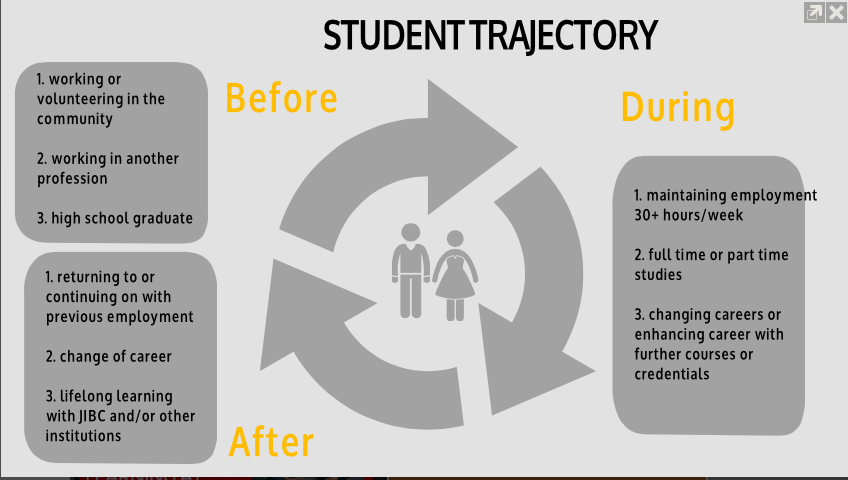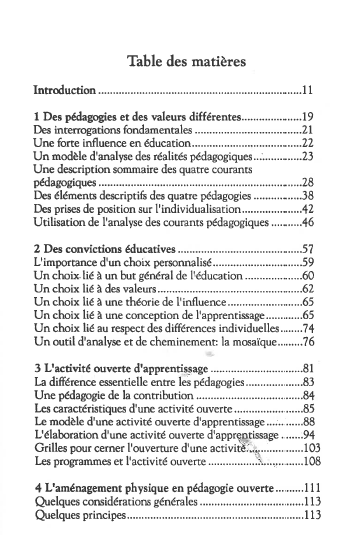OER in other languages – a project update of sorts
It’s been 5 weeks since I started the Other Language OER site and what started as part whim, part experiment, part inspired by following the #opencon stream, has evolved into an itch that that gets me on a daily basis. My goal was to post one OER per week from another language than English but after 5 weeks there are 12 OERs in 12 different languages, one of them submitted by someone other than myself (thanks @tomonagashima !)
The background and rationale for the site emerged from some longer deliberations and an even longer one over here and I get that it’s really a very limited audience who might be interested in this. But I’m learning a lot in my almost daily practice which incidently feels like a 15 minute treasure hunt I try and do first thing in the morning. Perhaps the biggest learning is that the resource itself isn’t the most interesting thing, but it’s how the resource is found, accessed, and ultimately what can be said about the broader OER landscape that is most interesting.
The first few posts were focussed on the resource itself and I wasn’t too explicit about my intention for posting it. But every post has an intention and observation, so in more recent posts I’ve tried to include those, since that’s the interesting part.
For example, my first post was text modules for a grad course on India and the World, and the purpose of starting with this one was to demonstrate that if you wanted to teach a course in say, Indian or South Asian politics, why not extend a search to include regions of the world where they might have a particular insight that might not be available or visible to us in English. Similarly, if we covet the Finnish K-12 education system so much, looking for K-12 material in Finnish seems like a great way to extend a search and build on their efforts. Of course, obviously its difficult to transport a Finnish K-12 textbook into our own K-12 curriculum. First it has to be translated. Then it has to line up with our curriculum. But if the potential of OER is truly in the remixing and adapting, then we need to set aside the difficulty of translation and localizing from other languages and practice what we preach where it makes sense. In some cases, especially where there are already resources that have been created by recognized experts in recognized countries, it seems ludicrous to even bother starting from scratch.
Of course, the 5 R’s tells us that an open license opens possibilities for new educational practices (OER enabled pedagogy if you will). What are the practices we want to see? First of all, I’d love to see K-12 open textbooks in Canada for reasons I expressed here. Imagine if an open textbook on Canadian History, for example, could be remixed (rewritten?) by Indigenous educators. Or imagine if students had to compare the North American chapter of an open Slovenian Geography textbook with their own high school Pearson edition?
Textbooks aside, there are other things I’ve learned from these past five weeks, some of them more obvious than others:
- Google translate is incredibly helpful
- Some languages, despite have a large population of speakers, turn up no open resources (eg. Swahili). Admittedly, this could be the fault of the searcher.
- Large pdfs don’t translate easily, as Google gets overloaded
- Some languages produce better translations than others
- If you want your OER to be reused, or simply translated, it really needs to be provided in multiple formats and not in a proprietary package (e.g. i-books that don’t download). Also, when said proprietary package company disappears, what happens?
- When a course is all text, there’s a fine line between a course and a textbook. Point being, if looking for an open textbook a repackaged open course might do the trick
- There are some great resources on sites that are dying a slow death, probably as a result of short term funding. Reusing and mirroring are important to maintain the life of these efforts.
- There are some fascinating cultural insights you gain from looking at OERs in other languages.
- Lesser used languages may have the most to gain from being more visible due to open licenses.
- There are no shortage of ancillary resources out there for the STEM type disciplines. Cf. German , Chinese, and Portuguese
- We really don’t need any more math textbooks- those seem to be the most frequently encountered subject in my searches
- Some countries are doing open courseware really well. C.f Delft (Holland) and Hokkaido (Japan).
A final shout out to Alan Levine aka @cogdog for creating the SPLOT template I use to create the site. It really is the simplest WordPress site you can have, and by allowing me (and anybody else who wants to) to quickly upload and publish without logging in and futzing around, it actually makes doing this on an almost daily basis a possibility. If you want to test drive it, grab an OER in another language and submit it over here.



